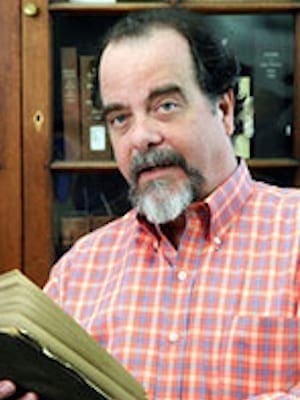Last week many Americans learned a new word: dissemble. The person who introduced the good word was our president, George W. Bush.
In a May 31 press conference where the president addressed Amnesty International’s damning commentary on recent U.S. treatment of prisoners Mr. Bush said, “It seemed like to me they based some of their decisions on the word of‑‑and the allegations‑‑by people who were held in detention, people who hate America, people that had been trained in some instances to disassemble‑‑that means not tell the truth.”
For good reason Mr. Bush has been lampooned by multiple media outlets, including print, electronic, radio and television.
Why? Because he got the meaning correct and the word wrong. He charged Amnesty International with an attempt to “disassemble” and goofed in his attempt to define the term as “not to tell the truth.”
Apparently Mr. Bush’s writers meant for him to say that Amnesty International had attempted to dissemble, which does mean to alter the truth.
In fact Mr. Bush confessed what he and his single-minded followers hope to do: disassemble the standards of judgment and discourse about important issues in our culture. Such disassembly is the most insidious kind of dissembling.
All Americans need to be diligent in the face of such efforts to turn the truth into less than the truth.
Also last week there was another example of dissembling and disassembling. The drama unfolded in Washington by way of Seattle.
In April the Discovery Institute, a Seattle-based “think tank” committed to promoting Intelligent Design as an alternative to evolution, paid $16,000 to the Smithsonian Institution for a chance to screen a pseudo-documentary entitled “The Privileged Planet” at the respected Washington museum of natural history.
The facts are simple: (1) the Smithsonian regularly accepts requests from private groups to screen films from a variety of groups; (2) the Smithsonian only accepts films from groups that are neither politically partisan nor explicitly religious; (3) as a matter of policy the Smithsonian becomes a co-sponsor of all screenings and receptions.
After the screening of “The Privileged Planet” was accepted, the Discovery Institute dissembled–that means that they did not tell the truth–about the event.
On their Web site they overstated the relationship between their film and the Smithsonian Institute. With some bombastic suggestion the Discovery Institute left the impression that the Smithsonian approved the content of the film, which is distinctly anti-evolution.
Then followed an expected media campaign to push further the idea that the alleged intelligent design alternative to the theory of evolution had gained some respectability.
Once the dissembling–that means being less than truthful–became public, the Smithsonian Institution had the fortitude to reconsider their decision. The Smithsonian did two courageous things. First they refused to co-sponsor the event and returned the $16,000. Then they allowed the screening of the film to proceed.
Hooray for the Smithsonian Institute for disassembling the dissembling of the Discovery Institute.
This episode may help disclose the character of the Discovery Institute. Founded in 1991 by Bruce Chapman, who cut his political teeth in the Regan administration, the goals of the institute are summarized in their “wedge strategy” that includes the bald intent to “overthrow … materialism [i.e., the traditions of natural and social science] and its cultural legacies.”
The “wedge strategy” also intends “to reverse the stifling dominance of the materialist worldview (sic), and to replace it with a science consonant with Christian and theistic convictions.”
A major component of the “wedge strategy” also includes fostering, if not controlling, public opinion. In the wake of the flap with the Smithsonian Institute there is strong evidence that for folks at the Discovery Institute shaping public opinion requires dissembling–not telling the truth about significant issues.
All Americans need to be diligent in the face of such efforts to turn the truth into less than the truth. Christians have an even greater reason to be diligent in the face of efforts to turn the truth into less than the truth.
Dissembling–not telling the truth–in matters of faith can only tarnish the truth of the Gospel we proclaim and claim to live by.
When dissemblers appear there is only one strategy to follow: disassemble their half-truths by demanding the whole truth. When the whole truth is known half truths crumble.
Richard Wilson is Columbus Roberts Professor of Theology and chair of the Roberts Department of Christianity at Mercer University in Macon, Ga.

